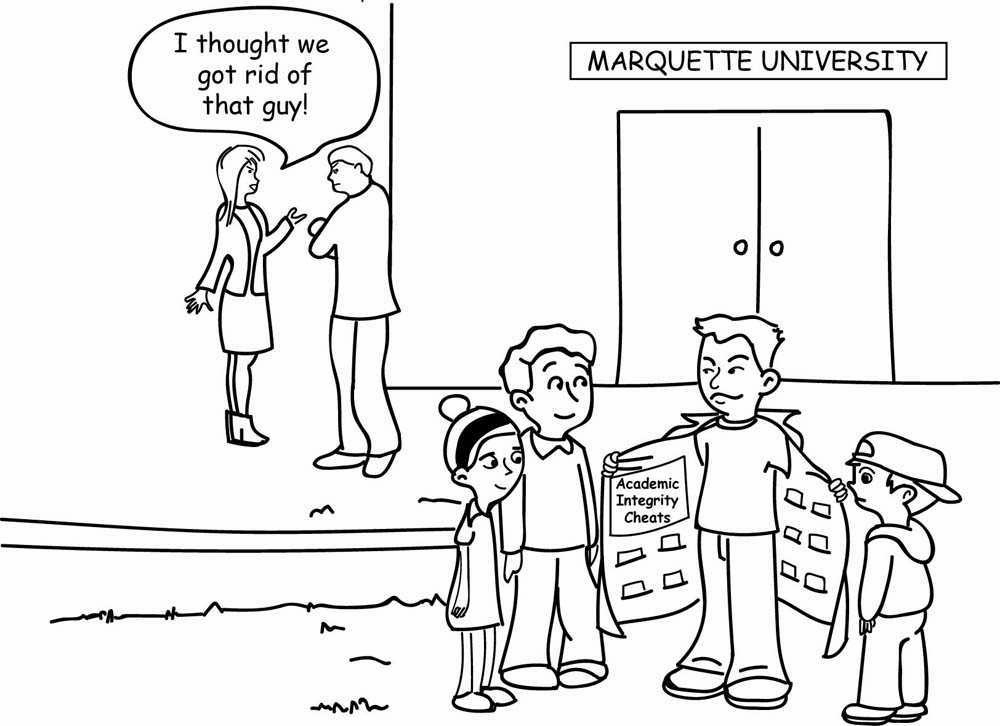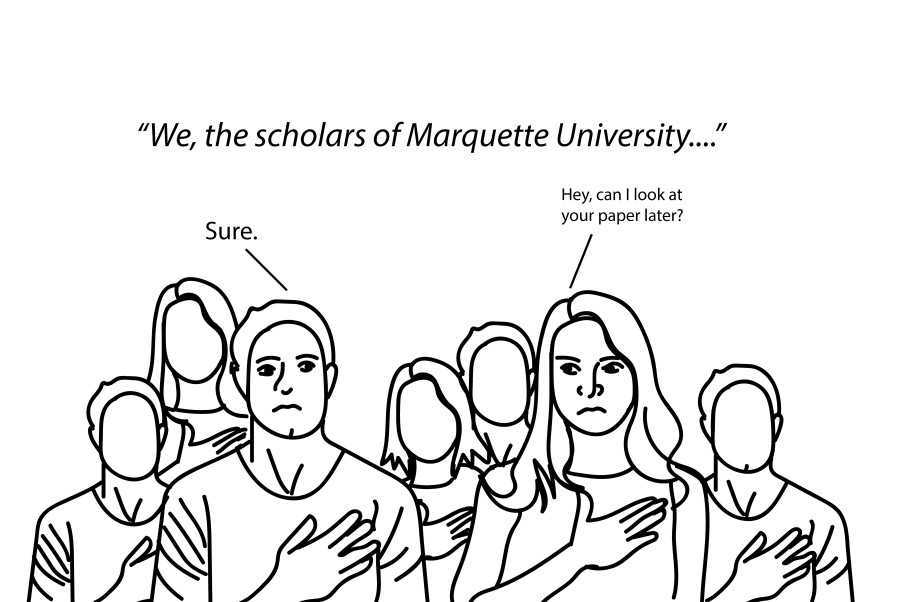
We all have things we have to do in order to get by. Paying bills and cleaning up after ourselves may be time consuming and less than thrilling, but in the long run, it is better to take care of them before things get out of control.
The university presents similar tasks that we have to accomplish in order to move forward into the next semester, such as advising meetings and getting through the current load of classes. This year the university added another student requirement by mandating the academic integrity tutorial to be completed before registration for the spring semester.
As the online training took at most an hour and could be easily fast-forwarded or muted, many students waited until the last minute to complete the tutorial and did not really learn the content. Students had to know enough of the material to pass the final assessment but then could simply forget about it the next minute.
At the beginning of the year, we thought this training would be a helpful way to start conversations between students and professors about academic expectations at Marquette. The creation of this tutorial could have initiated a wider and more sustainable conversation on classroom and work etiquette, like we had originally hoped, but it was just another thing the administration pestered students to complete.
The subject of academic integrity at a university is critical today, as proven with the recent discovery of 18 years worth of academic fraud at the University of North Carolina. Academic dishonesty varies in consequence depending on the action, but is overall unacceptable and to be prevented. Yet in its simplistic activities and somewhat vague coverage of the issue, as a lot of the issues depended on a particular professor’s stance, the tutorial did not fully enrapture students nor demonstrate the concrete importance of knowing this information. Ironically, some students even cheated on the final assessment for the sake of getting it done, proving that the training was less than effective in communicating the message.
With the shortcomings of the tutorial in mind, the university should find more ways to promote the conversation of academic integrity in the campus community. The administration should consider this training as a first step in addressing the problem by prompting individuals’ reflections. The content could carry over into broader community conversations about the issue and lead to further exploration of what needs to be done next.
Letting the conversation end with the final assessment does not promote an academically honest environment. If academic integrity is not something we consistently talk about, the training becomes pointless and a joke among students, similar to what happens after AlcoholEdu and some sexual assault prevention training. The university needs to counteract this result with more programs, such as student and faculty panel discussions and university-sponsored advice. We should remain in dialogue about academic integrity, with ongoing attention from the university.
Academic integrity and dishonesty, as discussed in the training if one remembers, are greatly debated. What is and is not acceptable in a real setting can vary from student to student and professor to professor. Now, the campus needs to more effectively talk about the issues that show up in the real context of Marquette. Then, we can talk about solutions and come to a better consensus about what the university expects from us and what activity we should uphold.
Some people will remember the tutorial as a major inconvenience, but further campus conversation and consideration can ensure that students view academic honesty not as an inconvenience, but as a guiding principle in our lives as students and alumni.



